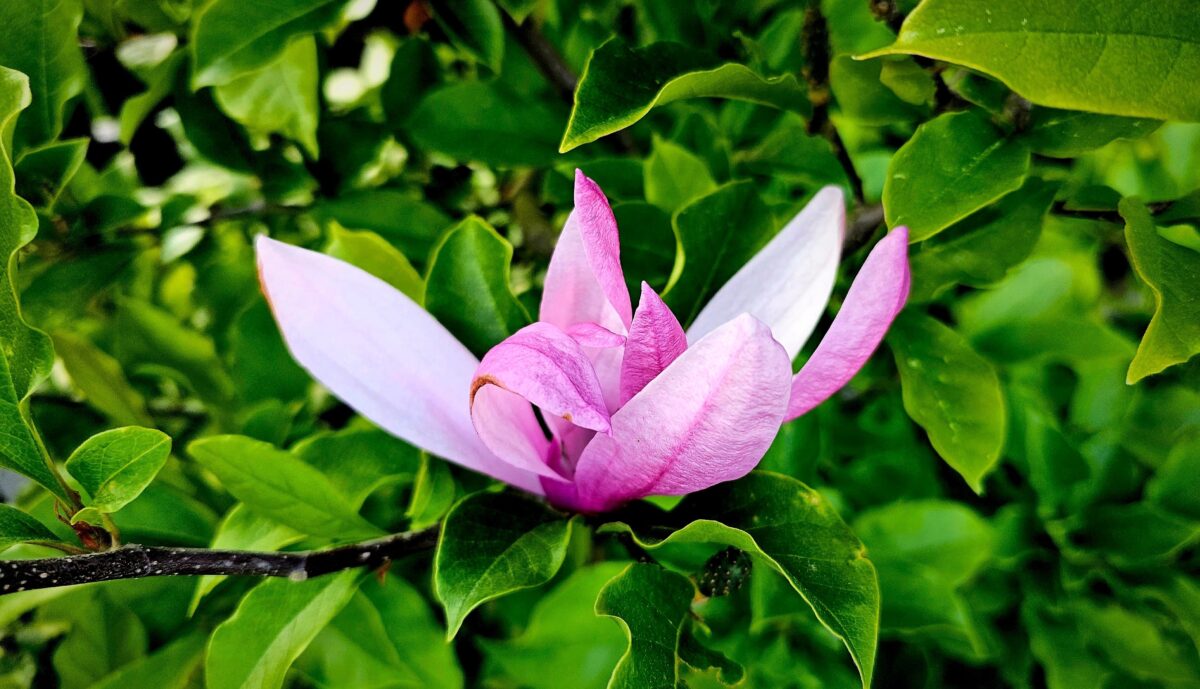


Researchers in the Netherlands have uncovered that honokiol, a compound found in the bark of magnolia trees, has the capacity to stop the spread of the SARS-CoV-2 virus within the body.
The study, published on May 22 in Microbiology Spectrum, an esteemed publication of the American Society for Microbiology, offers an innovative approach to the fight against COVID-19 by tapping into the power of traditional medicine.
Research indicates that honokiol not only curbs the replication of SARS-CoV-2, but also demonstrates broad-spectrum activity against various viral strains, including the Delta and Omicron variants. The broad-spectrum activity is significant because it suggests that honokiol may remain effective even as the virus mutates, according to a press release from study author Martijn J. van Hemert, associate professor in the Department of Medical Microbiology at Leiden University Medical Center.
What’s even more impressive is that this compound appears to accomplish its antiviral activity without causing substantial damage to the host’s cells, as some antiviral treatments do.
According to the World Health Organization (WHO), the global pandemic caused by SARS-CoV-2, the virus that causes COVID-19, has led to more than 766 million infections and close to 7 million deaths since it emerged in 2019, and the virus spreads quickly and has mutated into several variants.
Despite initial optimism surrounding vaccine development, the efficacy of these measures has proven less reliable than anticipated, underscoring the pressing need for effective antiviral treatments.
“Compared to vaccines, antivirals have advantages in terms of storage, distribution, administration, and acceptance by part of society,” the study reports. According to the National Institutes of Health, remdesivir is currently the only antiviral drug that is approved by the Food and Drug Administration for the treatment of COVID-19.
Beyond its capacity to curb viral replication, honokiol is anti-inflammatory, an attribute that could prove critical at later stages of the disease. “At that point, inhibition of virus replication might no longer be helpful, but honokiol’s anti-inflammatory response might mitigate the illness,” van Hemert said.
Magnolia bark, also known as “Hou Pu” in Chinese medicine, has been a staple in traditional herbal treatments across Korea, China, and Japan for centuries. In recent years, Western medicine has also taken an interest in the compound because of its demonstrated use for a wide range of conditions, including anxiety, depression, gastrointestinal disorders, asthma, and headaches. Honokiol is also commonly used to treat cancer.
With honokiol’s promising results in cell cultures, the path has been paved for further investigation into its antiviral properties, including in vivo studies.
“Our study merely provides the basis for further research into potential therapeutic applications,” van Hemert said. “It is important to mention that it is too early to claim that honokiol might be used in SARS-CoV-2 patients. This requires much more research and—if successful—properly conducted clinical trials.”
Still, the future may well see honokiol stepping up from the realm of laboratory cultures to become a key player in our real-world arsenal against the formidable virus.
“If honokiol can be developed into a drug, possibly in combination with other compounds, stockpiling it would help us to increase our preparedness for the emergence of the next coronavirus,” van Hemert said.
